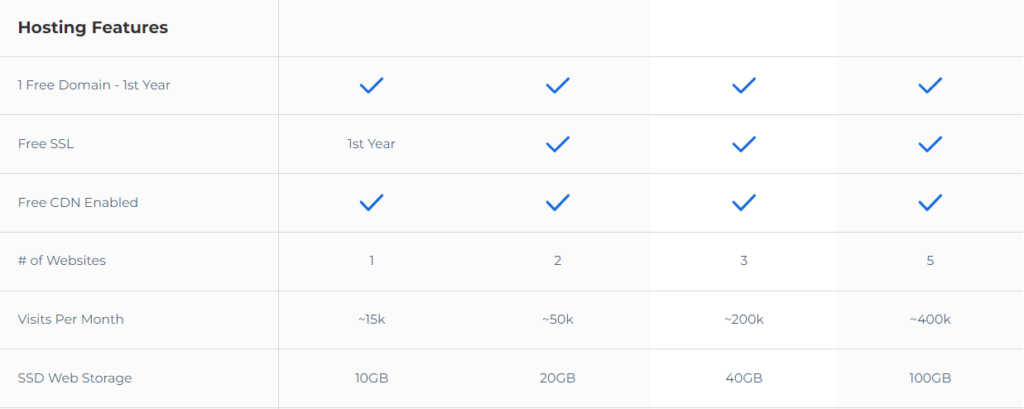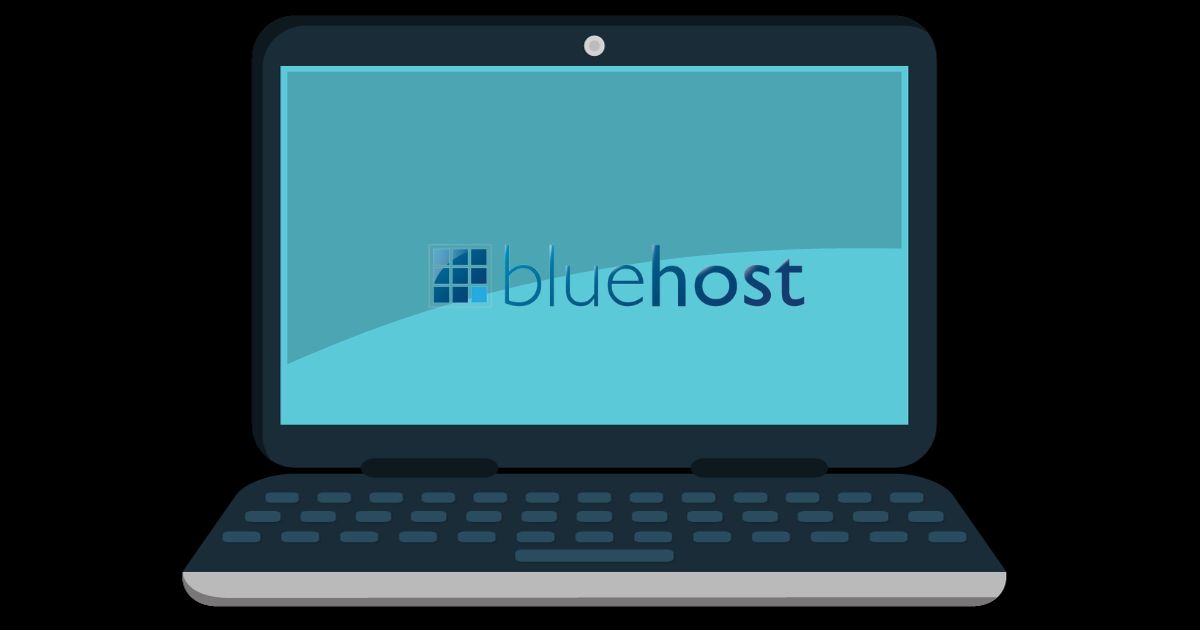Brief:
In the ever-evolving landscape of web hosting, Bluehost stands as a stalwart, providing hosting solutions to millions of websites worldwide. As a tech expert, it’s crucial to delve into the intricacies of its offerings to understand the benefits and drawbacks it presents in 2023. In this comprehensive guide, we’ll explore the features, benefits, and potential drawbacks, shedding light on its performance, pricing, and overall user experience.
Bluehost Features:
- Reliable Uptime:
Benefit: It boasts an impressive uptime record, ensuring your website remains accessible around the clock.
Drawback: Occasional maintenance periods may affect uptime, but it typically notifies users in advance.
- User-Friendly Interface:
Benefit: Its intuitive control panel simplifies website management for users of all skill levels.
Drawback: Some advanced users might find the interface lacking certain customization options available at other hosting providers.

- One-Click WordPress Installation:
Benefit: It streamlines the process of setting up a WordPress site, making it an ideal choice for bloggers and businesses using this popular platform.
Drawback: Users heavily reliant on other CMS platforms might find this feature less advantageous.
- Free SSL Certificate:
Benefit: It includes a free SSL certificate with all hosting plans, enhancing website security and boosting SEO rankings.
Drawback: Advanced users seeking more control over SSL configurations may find the built-in certificate restrictive.
- Scalability:
Benefit: It offers scalable hosting solutions, allowing users to upgrade or downgrade their plans as their website’s needs evolve.

Drawback: Pricing for upgrades can be a concern for budget-conscious users, especially when compared to competitors.
Bluehost Benefits:
- 24/7 Customer Support:
Benefit: It provides excellent customer support through various channels, including live chat and phone support, ensuring timely assistance for any issues.
Drawback: Some users report occasional delays in response times during peak hours.
- Integrated Content Delivery Network (CDN):
Benefit: It includes a built-in CDN with its hosting plans, improving website speed and performance for users around the globe.
Drawback: Advanced users may prefer the flexibility to choose their CDN provider, which is not an option with this web hosting provider.
- Free Domain Name for the First Year:
Benefit: Bluehost offers a free domain name for the first year, reducing initial setup costs for new website owners.
Drawback: Renewal prices for domain names can be higher than average, potentially impacting long-term affordability.

- 30-Day Money-Back Guarantee:
Benefit: Bluehost’s 30-day money-back guarantee allows users to test their services risk-free, ensuring satisfaction or a full refund.
Drawback: Some users report difficulty in obtaining refunds, citing complex terms and conditions.
Bluehost Drawbacks:
- Renewal Pricing:
Drawback: While Bluehost’s introductory prices are competitive, renewal prices can be higher than industry averages, catching some users off guard.
Mitigation: Consider opting for longer-term plans during the initial purchase to lock in lower rates.
- Limited Storage on Basic Plans:
Drawback: The basic hosting plans come with limited storage, which may pose challenges for websites with extensive multimedia content.
Solution: Evaluate your storage needs carefully and consider higher-tier plans for more substantial storage options.
- Overwhelming Upselling:
Drawback: Some users find Bluehost’s upselling tactics overwhelming, with numerous add-ons and features promoted during the checkout process.
Recommendation: Take the time to carefully review and opt out of unnecessary add-ons during the purchasing process.
Why Should I Choose Bluehost?
- WordPress Optimization: Bluehost is officially recommended by WordPress, ensuring seamless integration and optimal performance for WordPress websites. The one-click WordPress installation and dedicated WordPress hosting plans make it a go-to choice for WordPress enthusiasts.
- Reliable Reputation: With over two decades of experience, Bluehost has established a solid reputation in the hosting industry. Its commitment to reliability, security, and customer support has garnered trust among users worldwide.
- Robust Security Features: Bluehost prioritizes website security, offering a free SSL certificate, regular backups, and advanced security measures. This focus on safeguarding user data is crucial for both small businesses and large enterprises.

- Integrated Content Delivery Network (CDN): The inclusion of a built-in CDN in Bluehost’s hosting plans enhances website speed and global accessibility. This feature is particularly advantageous for businesses targeting an international audience.
- Scalability and Flexibility: Bluehost’s scalable hosting solutions allow users to start small and expand their resources as their websites grow. This flexibility accommodates the evolving needs of bloggers, entrepreneurs, and enterprises alike.
Alternatives to Bluehost:
Hostinger:
Pros:
Affordable Pricing: Hostinger is known for its budget-friendly hosting plans, making it an attractive option for individuals and small businesses.
Fast Loading Times: Hostinger’s use of LiteSpeed servers contributes to faster website loading times, enhancing the overall user experience.
Cons:
Limited Resources on Basic Plans: Similar to Bluehost, Hostinger’s basic plans come with restricted resources, which may not be sufficient for larger websites.
GoDaddy:
Pros:
Domain Registration: GoDaddy is renowned for its domain registration services, offering a wide range of domain extensions and management tools.
Diverse Hosting Options: GoDaddy provides various hosting options, including shared hosting, VPS, and dedicated servers, catering to different user needs.
Cons:
Upselling Practices: GoDaddy is often criticized for its aggressive upselling tactics, bombarding users with additional services during the checkout process.
Mixed Customer Support Reviews: While GoDaddy offers customer support, some users have reported inconsistent experiences, with long wait times and occasional difficulties in issue resolution.
Conclusion:
In the competitive realm of web hosting, Bluehost remains a formidable player, offering a range of features and benefits that cater to a diverse user base. While some drawbacks exist, understanding these nuances allows users to make informed decisions based on their specific needs and preferences. As of 2023, Bluehost continues to be a reliable choice for hosting, and with careful consideration of its features and drawbacks, users can harness its full potential for their online endeavors.
While Bluehost stands out for its WordPress optimization, reliable reputation, and robust security features, it’s essential to consider alternatives based on specific needs and preferences. Hostinger’s affordability and fast loading times make it a compelling choice for budget-conscious users, while GoDaddy’s domain registration expertise and diverse hosting options cater to a broad spectrum of users. Ultimately, the right hosting provider depends on individual requirements, and a careful evaluation of features and drawbacks ensures a well-informed decision in the dynamic world of web hosting.
Keep reading such blogs; click here to read more.
